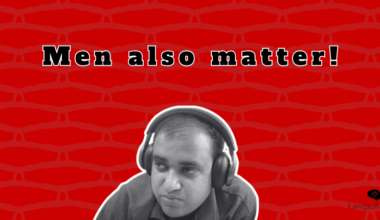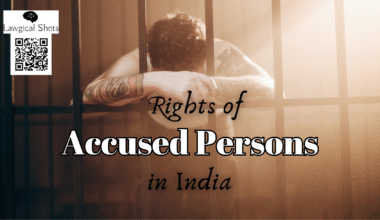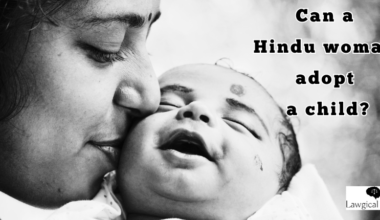If we look at the differences, every human being carries a distinct DNA which defines the bodily autonomy of a person, be it the colour, height, body structure, and so on. However, if we look at a broader picture, humans are all the same, with similar needs. We are a social animal who needs to live in a society, among people, need communication apart from food and water, have feelings, are intelligent beings. Since there are so many similarities, the United Nations came up with the Universal Declaration of Human Rights UDHR on December 10, 1948. The charter aims at enlisting certain rights which every individual is entitled to, regardless of the differences of race, nation, sex, color, etc. Here, we attempt to list and explain the 30 basic human rights in the UDHR and their corresponding stipulation under the Indian Constitution and other laws.
30 Basic Human Rights in UDHR
Article 1: Right to Equality
The provision states that all human beings are born free. Everyone should be treated equally in a dignified manner, entitled to equal rights. It promotes brotherhood among beings for being endowed with reason and conscience. Article 14 of the Indian Constitution corresponds to the right to equality under UDHR.
Article 2: Freedom from Discrimination
Article 2 clarifies that everyone is entitled to the human rights under Universal Declaration of Human Rights without any discrimination based on race, colour, sex, language, religion, political or other opinion, national or social origin, property, birth or other status. It restricts any scope for discrimination on the basis of political, jurisdictional or international status of the country or territory which a person belongs to. The corresponding provision in the Constitution of India is enshrined under Article 15.
Article 3: Right to Life, Liberty, Personal Security
The provision lays the right for everyone – to life, liberty and personal security. The right is way too broad, and includes everything which is necessary for the basic livelihood of a person. A similar provision is encapsulated under Article 21 of Indian Constitution pertaining to right to life.
Article 4: Freedom from Slavery
The Universal Declaration of Human Rights prohibits slavery in all forms. It restricts any person from being held in slavery or servitude, restricting slave trade. Article 23 of Indian Constitution lays a similar provision which prohibits slavery, forced labour and human trafficking.
Article 5: Freedom from Torture and Degrading Treatment
Being a human with dignity also means that there shall be no torture, cruelty. There shall be absence of any inhuman or degrading treatment or punishment. While the right to life in Indian Constitution upholds human dignity, there are several other laws in India which stand against cruel or inhuman behaviour.
Article 6: Right to Recognition as a Person before the Law
The UDHR provision under Article enshrines the right of recognition before the law. It manages to uphold the right to equality before the law and equal protection of laws. It also means that even if a person does not belong to a particular state/country, he/she should still be recognized as a person for dignified treatment.
Article 7: Right to Equality before the Law
It states that everyone has a similar standing before the laws, entitled to equal protection of laws without discrimination. People are even entitled to protection against any kind of discrimination or its incitement. The provision for equality before laws is encapsulated under Article 14 of the Constitution of India.
Article 8: Right to Remedy by Competent Tribunal
The rights entitled to a person are of no use if there is no authority to seek redressal in case of infringement of such rights. For any acts violating fundamental rights of the Constitution or any other law, there should be competent national tribunals to seek redressal. The right to remedy against violation of fundamental rights is provided under Articles 32 and 226 of Indian Constitution.
Article 9: Freedom from Arbitrary Arrest and Exile
You enjoy no absolute rights in reality if those in power can take you anytime, anywhere without any explanation. The provision here states that nobody shall be subjected to arbitrary arrest/detention/exile. The Indian law also requires an arrested person to be produced before the Magistrate within 24 hours. There is no rule of arbitrary arrests in India, or there is writ of habeas corpus to protect those in distress.
Article 10: Right to Fair Public Hearing
The UDHR Article 10 entitles everyone the equality to fair and public hearing by an independent and impartial tribunal. The said tribunal is entrusted with the task to determine the person’s rights/obligations or any criminal charges against him/her. The provision is all about fair trial, which is also the basis of the Indian Legal System.
Article 11: Right to be Considered Innocent until Proven Guilty
The provision targeting criminal trials confines the presumption of innocence of a person charged with an offence, until proven guilty during the trial. It further requires guaranteed opportunities for the accused person to defend himself/herself. The Indian laws also support the stance, since everyone has the right to be represented by a lawyer to defend before the Court of Law, and free legal aid as well.
The provision further states that what is a crime today should be applicable to acts done today. If the said act stops being a crime tomorrow, benefit also shifts to the person charged with the offence. The siad protections are enshrined under Article 20 of Constitution of India.
Article 12: Freedom from Interference with Privacy, Family, Home and Correspondence
The provision restricts any arbitrary interference with a person’s personal space including privacy, family, home/correspondence. It further extends to the right to honour and reputation. While the right to privacy as well as reputation is interpreted by the Indian Courts under Article 21, harm to reputation is addressed under Section 356 of Bharatiya Nyaya Sanhita as an offence.
Article 13: Right to Free Movement in and out of the Country
You do not enjoy abundant rights if you are restricted within the four walls. That is where UDHR Article 13 comes to rescue your right to movement. Being within a country, a person enjoys freedom of movement and residence. A person can leave the country and also return to a country.
Article 14: Right to Asylum in other Countries from Persecution
In case of political ups and downs, there is the right to seek asylum from other countries while apprehending persecution. However, the right may not extend in case of non-political crimes.
Article 15: Right to a Nationality and the Freedom to Change It
Where you are born may not be in your hands, but where you wish to live can be embraced through Article 15 of the Universal Declaration of Human Rights. It grants everyone the right to nationality, and restricts arbitrary deprivation of nationality. Every person also has the right to change his/her nationality.
Article 16: Right to Marriage and Family
The provision extends the right to marry for persons of marriageable age, not restricted by race/nationality/religion. People have similar rights to marry, during the marriage, and for dissolution of the same. It upholds the right to marry against any force but with free will of the intending spouses. It further extends a family’s right to protection by society and state, being the natural unity of a society. The Indian laws specify provisions for marriage based on specific religions, since there is no Uniform Civil Code to govern such civil rights.
Article 17: Right to Own Property
Possession is the pursuit of humans, and the right to property granted under the UDHR strengthens the same for individuals as well as association. It restricts arbitrary deprivation of a person from his/her property. While initially the right to property was a fundamental right under the Constitution, the same was transformed into a Constitutional right under Article 300A.
Article 18: Freedom of Belief and Religion
A person’s belief shapes an individual and his/her religion shapes the society at large. The provision under Article 18 extends the freedom of thought, conscience and religion of a person, including right to change the religion, and to manifest the religious teaching/practice/worship/observance. Article 25 to 28 of the Indian Constitution states about the various aspects of right to religion of individuals as well as groups.
Article 19: Freedom of Opinion and Information
A person is all about how he/she thinks and expresses thoughts. Article 19 of UDHR discusses a person’s freedom of opinion and expression. The same includes the right to opinion without interference. It further includes right to information and ideas through any medium. Article 19(1)(a) of Indian Constitution corresponds to the right to expression. It includes the right to speech, expression, consolidating the rights of press as well.
Article 20: Right of Peaceful Assembly and Association
Unity is strength, and has a voice of its own as compared to hundreds of individual voices. That is why people have the right to assemble, to associate in a peaceful manner. However, Article 20 of UDHR further restricts anyone compelling another to be a part of an association. The said freedom is enshrined under Article 19(b) of Constitution of India.
Article 21: Right to Participate in Government and in Free Elections
India is a democracy where everyone has the right to vote and adult suffrage, fight elections, and form a government in accordance with the Constitutional principles. The said aspect of people’s participation in forming a government through free elections is enshrined under Article 21 of Universal Declaration of Human Rights.
Article 22: Right to Social Security
Feeling secure in a society is all about being a human. Article 22 grants members of the society the right to social security. Everyone is entitled to realization of resources – economic, social and cultural rights. This boosts the free development of a person’s individual personality. Coming to the Indian Constitution, Article 43 of Directive Principles of State Policy holds the state responsible for providing social security benefits to the citizens.
Article 23: Right to Desirable Work and to Join Trade Unions
To earn a livelihood means independent people. Every person should enjoy the right to work, of free choice of employment, just and favourable work conditions. He/she shall be protected against unemployment without any discrimination, and deserve equal pay for equal work. Just and favourable remuneration is another facet of right to work with human dignity. While individuals may not be heard, people at work also enjoy the right to form and join trade unions to protect their interests at work. The said rights are encapsulated under Indian Constitution Article 41.
Article 24: Right to Rest and Leisure
While there is right to work for people everywhere, it does not mean working all the time – day and night. It only means working for reasonable hours with paid holidays, so that a person has time for rest and leisure. If there was no such exception, may be people would have been expected to work like a machine. The Indian Labour Laws ensure fixed hours for workmen and employees.
Also explore about International Covenant on Civil and Political Rights
Article 25: Right to Adequate Living Standard
Right to live is not only fine breathing. That is why the Universal Declaration of Human Rights ensured for every person the right to standard of living, which covers health, well-being, food, housing, medical care, social services, security as against unemployment/sickness/disability/widowhood/old age or any lack of livelihood. It further adds for special care and assistance to mothers and children, with both legitimate and illegitimate children to enjoy similar social protection. The said aspects are squarely covered by the policy makers in India through various social security schemes.
Article 26: Right to Education
In India, the right to education was not initially recognized. The same was considered only in 2002 through the 86th amendment of the Indian Constitution. The same led to inclusion of Article 21A which embraced Right to Education as a fundamental right; Article 45 imposed the same as a duty upon the State, and the RTE Act of 2009 laid several provisions in this direction.
Article 27: Right to Participate in the Cultural Life of Community
Our culture defines who we are and how we live life. It is an integral part of an individual, and thus, recognized under the UDHR as a human right. Article 27 states that everyone has the right to participate in the cultural life of the community, enjoy arts, share scientific advancement, etc. It further extends the protection for moral and material interests and briefly lays the foundation for intellectual property rights.
Article 28: Right to a Social Order that Articulates this Document
When we read Indian laws, there are several instances where people are required to act in accordance with upholding the law and order and morality in a society. Article 28 of UDHR corresponds to the said stance where every person is entitled to social and international order for complete realization of freedoms they are entitled to. The current state of affairs where countries are in war against one another, is not at all a state of international order, and ignites risk for social fabric as well.
Article 29: Community Duties Essential to Free and Full Development
While everyone is entitled to several human rights under the Universal Declaration of Human Rights, people eventually get some duties towards each other and the society. The said aspect is covered as fundamental duties under Article 51A of Constitution. Article 29 states people’s duty towards the community for full development of his/her personality, proposing limitations determined by laws for recognizing rights and freedoms of others for the purpose of morality, public order and general welfare.
Article 30: Freedom from State or Personal Interference in the above Rights
The idea behind the Universal Declaration of Human Rights is to entitle people to certain basic rights regardless of who they are and which country they belong to. Thus, Article 30 restricts actions which lead to destruction of the rights and freedoms enshrined under UDHR.








